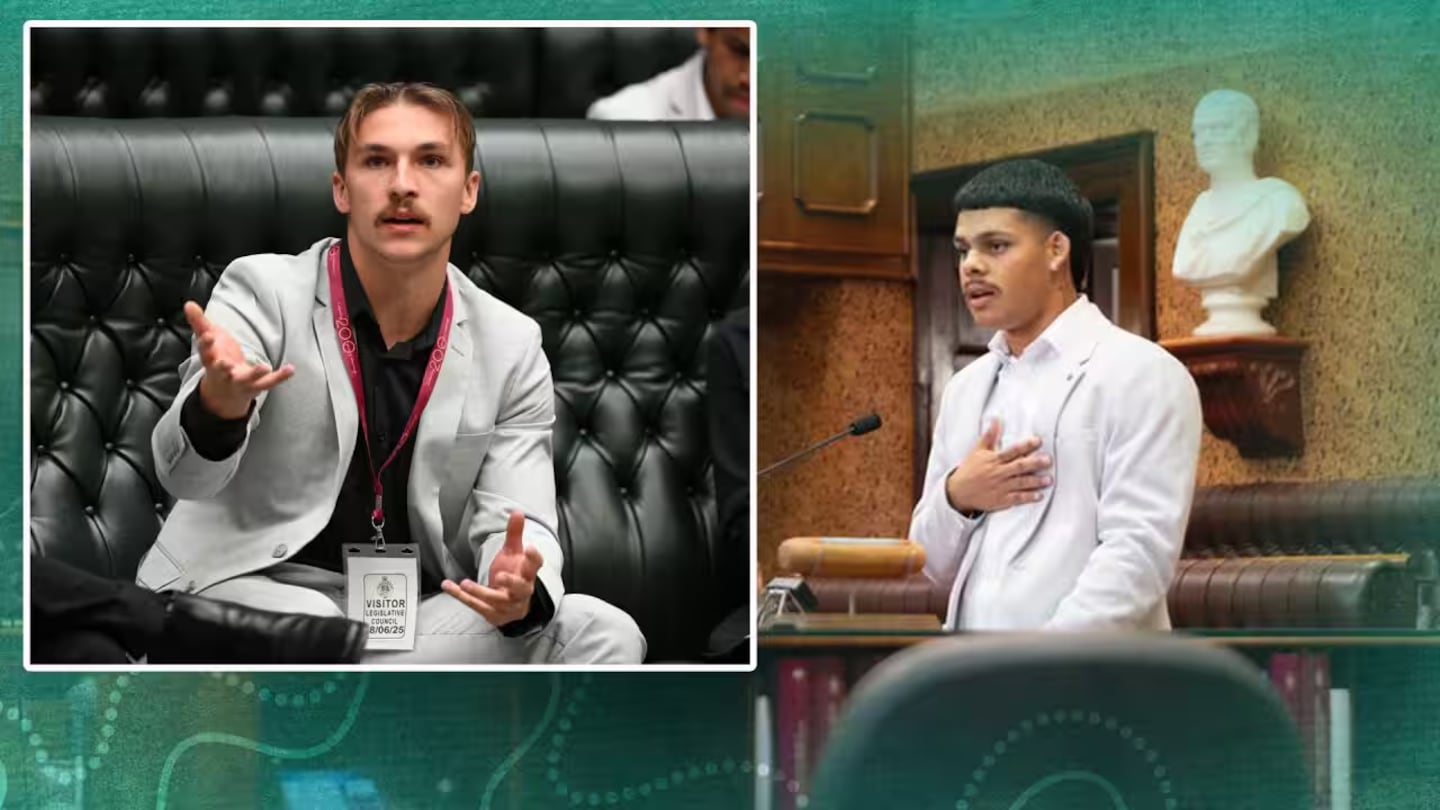This article was first published by NITV
When Wailwan and Wiradjuri man Jai McEwen and Kerrupjmara man Jacob Smeaton stood to speak inside the NSW Parliament, they didn’t just represent themselves – they carried their families, their communities, and their ancestors with them.
Both young leaders had travelled from the Central Coast to participate in the Young Aboriginal Leaders Program, a gathering of 19 emerging voices from across NSW.
They were there to speak truth – and to call for real change.
“Our Elders have fought the fight – but they can’t do it forever,” Jai said.
“It’s our responsibility to take the torch and let them rest.
“We are not the leaders of tomorrow. We are the leaders of today.”
Their words struck a chord, not only with those in the chamber, but with mob watching across the state.
In a building that has long excluded Aboriginal voices, two young Blak leaders reclaimed space and demanded better.
Grandmothers, guidance and grit
For both Jai and Jacob, legacy begins at home. When asked what shaped their sense of strength and responsibility, they each pointed to the same source: their grandmothers.
“She sacrificed so much, leaving her Country in Gulargambone and moving to Willmot for a better life,” Jai said.
“That house she built became a hub for our family.
“Fires going, music playing, a bed for everyone. I wear her name with pride.”
Jacob echoed that sense of grounding.
“I found safety in my nan and pop,” he said.
“Every opportunity I have, I think about them because our old people weren’t given the chances we have now.
“That’s why I don’t take anything for granted.”
Leading from lived experience
While both leaders have different styles, they share a common belief: that real leadership comes from lived experience, community connection and culture.
“Young mob bring diversity, resilience and strength,” Jai said.
“We came together from all different places, regional, metro, rural.
“When one of us didn’t have the experience, someone else stepped up – that’s what leadership looks like.”
Jacob agreed – and took it one step further.
“We’ve lived the good and the bad in our communities,” he said.
“When we lead, we lead with that full experience, that’s our biggest strength.”
Speaking back to power
Their Parliament speeches were staunch and deeply grounded.
Jai used his time at the microphone to speak directly to young people.
“We’re tired of being told we’re too young to lead,” he said.
“We have every right to be at the table, to be part of the decisions being made about us.”
Jacob used his speech to challenge how governments view Aboriginal youth.
“What government currently invests in is youth detention, mental health crisis, out-of-home care,” he said.
“If all we invest in are issues, that’s all we’re seen as.”
Instead, he called for sustained investment in community-led youth programs, like the Empowered Youth Summit, which he helps run through his work at Barang Regional Alliance.
“Don’t take us from community to teach us leadership. Let us show you what it looks like on our terms,” Jacob said.
Legacy rooted in community
Both men have a strong sense of the legacy they want to leave behind.
“I want my legacy to be someone you walk with, not someone who leads from the front,” Jai said.
“Leadership, to me, is about care, nurture, making people feel included.”
Jacob said he measures success by how many others get the same chance he’s had.
“If we do our job right, in a few years it won’t be me in these programs, it’ll be someone else from our community, that’s the point,” he said.
His speech closed with a quote he holds close:
“A good society is one where we plant trees whose shade we may never sit under.”
Not waiting, leading now
In a year where NAIDOC Week celebrates ‘The Next Generation: Strength, Vision and Legacy’, Jai and Jacob are living proof that the next generation isn’t coming, it’s already here.
They’re not waiting for permission. They’re not waiting for inclusion.
They’re leading now – with courage, culture, and community behind them.
By Bronte Charles of NITV



